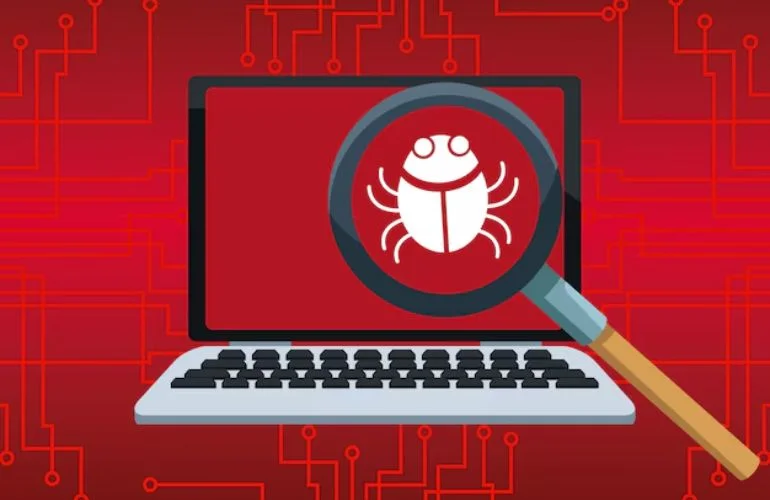In the world of networking and application development, the loopback address plays a crucial role in local testing and troubleshooting. The IP address 127.0.0.1:62893 is a specific configuration often encountered in these processes. It combines the localhost IP (127.0.0.1) and a dynamic port number (:62893) to facilitate communication between applications within the same system.
This configuration is integral for developers working on local servers, debugging applications, and ensuring secure communication within their systems. This article will explore the significance of 127.0.0.1:62893, its practical applications, troubleshooting tips, and more.
Understanding 127.0.0.1
What is 127.0.0.1?
The address 127.0.0.1 is commonly referred to as the loopback address. It points back to the local machine itself, creating a virtual link that allows a device to send and receive data internally. This is particularly useful in testing and development scenarios where external networks are not required. The loopback address is universally recognized in networking as a vital tool for isolating processes within the same machine.
Role of the Loopback Address in Networking
The loopback address is critical for ensuring that data packets remain confined to the local machine. This allows developers to test their applications in a controlled environment without the risks associated with external networks. It also serves as a diagnostic tool for checking the operational status of the local network stack.
Common Use Cases for Localhost
- Testing Applications: Developers use localhost to run and debug software, ensuring it operates correctly before deployment.
- Web Development: Localhost provides a platform to host web servers for development and testing purposes.
- Network Diagnosis: IT professionals use the loopback address to verify configurations and identify potential issues within the network stack.
When managing your WordPress site, it’s essential to ensure that all internal links are working correctly and directing users to relevant content. For tips and best practices on verifying your internal links, you can refer to this guide on how to check and verify internal links in WordPress. Properly maintained internal links not only improve site navigation but also enhance SEO by providing a better user experience.
Why is 127.0.0.1 Important?
Debugging and Testing Applications Locally
The loopback address provides a sandboxed environment where developers can test their applications without external interference. By using 127.0.0.1, bugs can be identified and resolved efficiently, ensuring smooth functionality in live environments.
Isolating Applications for Secure Testing
Using 127.0.0.1 allows testing in a controlled and isolated environment. This reduces the risk of unintentional access to production systems or sensitive data during the development phase, enhancing both security and reliability.
What Does :62893 Represent?
Explanation of Port Numbers and Their Function in Networking
Port numbers serve as unique identifiers for communication channels within a network. The combination of an IP address and a port number, such as 127.0.0.1:62893, allows applications to distinguish between different streams of data.
How Port Numbers Facilitate Communication
Ports enable simultaneous communication between multiple applications. For example, while port 80 is commonly used for HTTP traffic, dynamic ports like 62893 are often assigned temporarily for specific tasks such as running development servers or testing API endpoints.
Common Uses for Dynamic Ports Like 62893
- Temporary Connections: Dynamic ports are frequently assigned for short-term processes.
- Application Testing: Ports like 62893 facilitate local testing by allowing developers to isolate specific communications.
- Multi-Application Management: Dynamic ports enable the simultaneous operation of multiple applications on the same system.
127.0.0.1:62893 in Action
Example Scenarios
- Running Local Servers: Developers configure servers to operate on 127.0.0.1:62893 to simulate production environments locally.
- Debugging Applications: Using this configuration helps developers identify issues without exposing their applications to external networks.
Interpreting Connection Issues
Errors such as “connection refused” or “port in use” are common when using 127.0.0.1:62893. Understanding and resolving these issues ensures smooth operation and reduces downtime during development.
Common Issues and Troubleshooting
Connection Refused
- Reasons: This error often occurs when the server is not running or a firewall blocks the connection.
- Solutions: Ensure the server is active and verify that firewall settings permit traffic to 127.0.0.1:62893.
Port in Use
- Reasons: Another application may already be using port 62893.
- Solutions: Identify the conflicting process using tools like netstat or lsof and terminate it, or reassign a different port to your application.
Firewall or Security Restrictions
- Issues: Stringent firewall settings can block communications on 127.0.0.1:62893.
- Solutions: Update firewall configurations to allow localhost traffic on the specified port.
Security Implications
Is It Safe to Use 127.0.0.1:62893 for Local Testing?
Yes, using 127.0.0.1:62893 is generally safe because all communication is confined to the local machine. This ensures that external threats cannot access the data.
Risks of Exposing Localhost Ports
Exposing localhost ports to public networks can lead to unauthorized access or exploitation. Developers must exercise caution to avoid such vulnerabilities.
Best Practices for Secure Configurations
- Use Firewalls: Configure firewalls to restrict access to localhost ports.
- Avoid Public Exposure: Never bind localhost configurations to public-facing IP addresses.
- Monitor Activity: Regularly check for unusual activity on localhost ports to identify potential security issues.
Practical Use Cases
Hosting a Development Server
Localhost configurations like 127.0.0.1:62893 are ideal for hosting development servers. This setup enables developers to test applications, APIs, and other components before deploying them to live environments.
API Testing
By directing API endpoints to 127.0.0.1:62893, developers can verify functionality without relying on external systems. This simplifies debugging and improves efficiency.
Database Connection Testing
Testing database connections locally using 127.0.0.1:62893 ensures that all components work together seamlessly. It’s an essential step in preparing applications for production.
Comparison with Similar Configurations
127.0.0.1 vs. Other Local IPs
- Differences: 127.0.0.1 is a loopback address, while private IPs like 192.168.x.x connect devices within a local network.
- Usage: Loopback addresses focus on internal testing, whereas private IPs enable device communication within a LAN.
Static vs. Dynamic Ports
- Static Ports: Reserved for specific services (e.g., port 80 for HTTP).
- Dynamic Ports: Temporarily assigned, like 62893, for short-term processes.
Conclusion
The combination of 127.0.0.1:62893 is a cornerstone of local testing and development. By providing a secure, isolated communication channel, it allows developers to debug and troubleshoot applications efficiently. Whether hosting development servers, testing APIs, or resolving network issues, understanding 127.0.0.1:62893 is crucial for smooth and secure operations.
For those new to website development or troubleshooting, understanding the term “localhost” is essential. It refers to the local server environment on your computer that is used to test and develop websites or applications before making them live. To learn more about the concept and its significance, you can check out this detailed explanation.
Call-to-Action
Explore the potential of 127.0.0.1:62893 in your projects. Experiment with localhost configurations, share your experiences, and leverage this powerful tool for seamless development and testing.
FAQs
What is 127.0.0.1:62893?
It’s a combination of the localhost IP address (127.0.0.1) and a dynamic port number (62893) used for local testing and debugging.
What is the 127.0.0.1 address used for?
The loopback address is used for internal communication within the same machine, primarily for testing and troubleshooting.
Why is 127.0.0.1 famous?
It’s widely recognized as the standard address for localhost, making it essential for developers and network administrators.
What does Ping 127.0.0.1 verify?
Pinging 127.0.0.1 confirms that the local network stack is functioning correctly, a critical diagnostic step.
What does DNS server 127.0.0.1 mean?
It indicates that DNS queries are resolved locally, often used in testing or custom configurations.















Leave a Reply